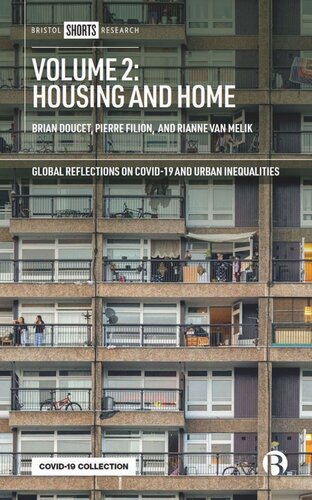

Most ebook files are in PDF format, so you can easily read them using various software such as Foxit Reader or directly on the Google Chrome browser.
Some ebook files are released by publishers in other formats such as .awz, .mobi, .epub, .fb2, etc. You may need to install specific software to read these formats on mobile/PC, such as Calibre.
Please read the tutorial at this link: https://ebookbell.com/faq
We offer FREE conversion to the popular formats you request; however, this may take some time. Therefore, right after payment, please email us, and we will try to provide the service as quickly as possible.
For some exceptional file formats or broken links (if any), please refrain from opening any disputes. Instead, email us first, and we will try to assist within a maximum of 6 hours.
EbookBell Team

5.0
20 reviewsThe COVID-19 pandemic was not a great ‘equaliser’, but rather an event whose impact intersected with pre-existing inequalities affecting different people, places, and geographic scales. Nowhere is this more apparent than in housing. Written by an international group of experts, this book casts light on how the virus has impacted the experience of home and housing through the lens of wider urban processes around transportation, land use, planning policy, racism, and inequality. Case studies from around the world examine issues around gentrification, housing processes, design, systems, finance and policy. Offering crucial insights for reforming cities to be more resilient to future crises, this is an invaluable resource for scholars and policy makers alike.